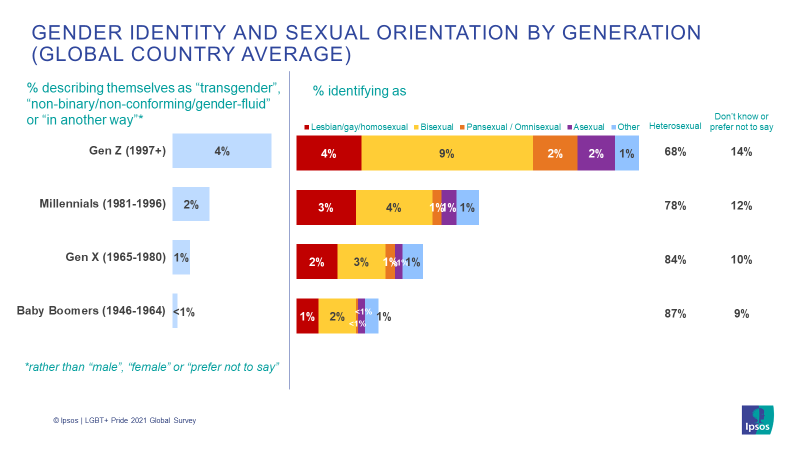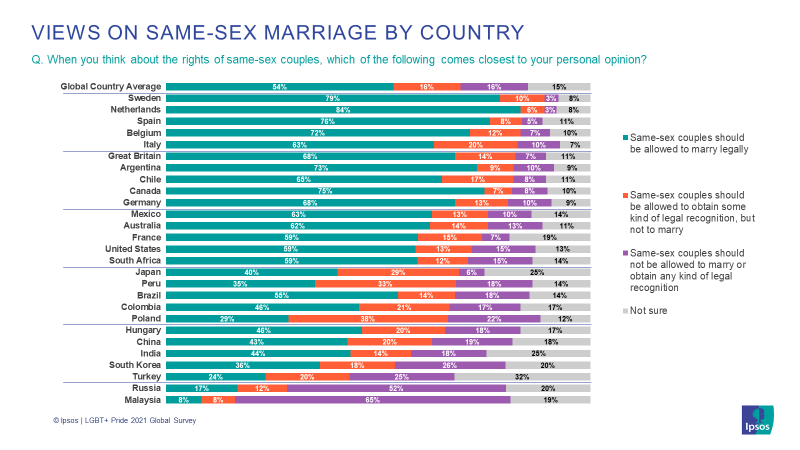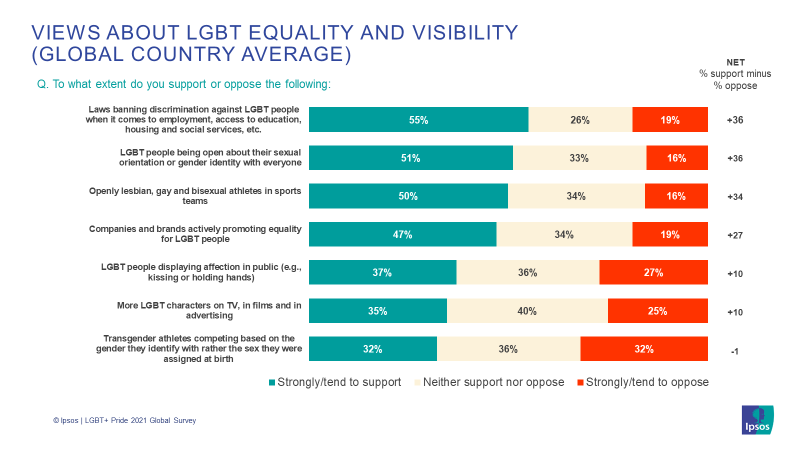LGBT+ Pride 2021 Global Survey points to a generation gap around gender identity and sexual attraction
New York, NY, June 9, 2021 — Ipsos’s LGBT+ Pride 2021 Global Survey points to a wide generation gap around gender identity and sexual attraction. On average, across the 27 countries surveyed, those who identify as transgender, non-binary, non-conforming, gender-fluid, or other than male or female make up 4% of Gen Z (born since 1997) compared to 1% among all adults. Younger adults are also significantly more likely to identify differently from heterosexual and to say they are equally attracted to both sexes.

The survey, which was conducted on Ipsos’s Global Advisor online platform among more than 19,000 individuals aged 16 (or 18, depending on the country) to 74 between April 23 and May 7, 2021, shows how much exposure to LGBT+ people and engagement with the LGBT+ community varies across the world. For example, 66% in Brazil report having a gay or lesbian relative, friend or colleague vs. 7% in Japan and South Korea.
Similarly, anti-discrimination laws and equal marriage and adoption rights for LGBT people are supported by majorities in most of the 27 countries, but are fiercely opposed in several countries.

The survey also finds a lot more support than opposition toward corporate activism promoting equality.
Majorities in most (but not all) countries support LGBT people being open about their sexual orientation or gender identity with everyone. And there is generally more support than opposition toward LGBT people displaying affection in public and more LGBT characters on TV, in films and in advertising.
There is a great deal of support in most countries for lesbian, gay and bisexual athletes in sports teams being open about their orientation. On the other hand, when it comes to allowing transgender athletes to perform according to the gender they identify with, public opinion is divided and varies widely across countries.




